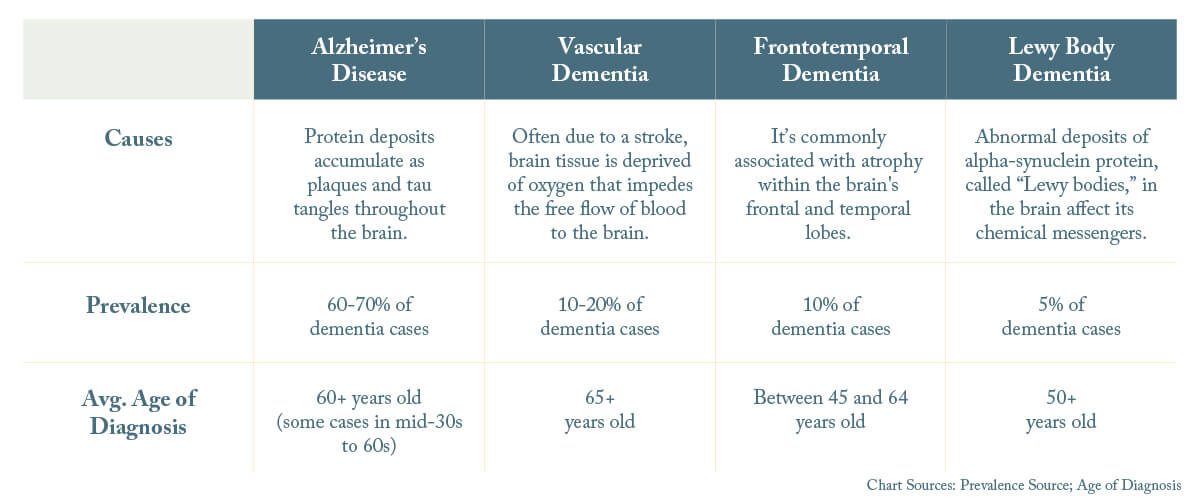
Understanding Common Types of Dementia and Empowering Caregivers
Navigating the challenges of caring for a family member with dementia involves understanding the condition thoroughly. This journey involves learning about the complexities of dementia – from its causes to the different types and early symptoms – in order to empower caregivers with effective support strategies. As a memory care provider in O’Fallon, MO, Park Place at Winghaven is sharing information to help you further comprehend dementia and its most common forms.
What is Dementia?

Dementia is not a singular diagnosis but a general term for a decline in mental ability severe enough to interfere with daily life. It encompasses multiple cognitive areas, including memory, language, problem-solving, and attention. Although it is often associated with aging, it is not a normal part of the aging process.
What distinguishes dementia is its impact, which upends daily rituals and necessitates complex adaptations. It isn’t merely memory loss but a collective regression that can make even the most mundane tasks opaque. The effects ripple through personal, professional, and family life, demanding new strategies for engagement and care.
Understanding dementia is pivotal in crafting an environment of support and empowerment. And yes, within the term’s daunting contours, there exists the seed of familial growth and resilience.
Distinguishing the Types of Dementia
Alzheimer’s Disease
At the heart of Alzheimer’s disease lies a profound mystery that challenges our understanding of the human brain. This condition emerges not as a result of the natural aging process but from complex changes within the brain itself, including abnormal protein build-ups known as amyloid plaques and tau tangles. These proteins disrupt the vital communication between neurons, leading to loss of function and cell death.
Symptoms of Alzheimer’s disease unfurl gradually, initially presenting as mild forgetfulness or confusion but gradually advancing to profound cognitive impairments. This progression can strip away one’s ability to recall beloved memories or perform simple tasks independently and even alter personality and social behaviors.
Symptoms can include:
- Memory loss, including forgetting things, repeating questions, and misplacing items.
- Language decline.
- Loss of independent function.
- Visuospatial challenges such as locating or recognizing things.
- Problems with calculations, reasoning, and problem-solving.
Vascular Dementia
Vascular Dementia is a condition resulting from reduced blood flow to the brain, leading to an obstruction that causes tangible and sometimes unpredictable alterations in cognitive abilities. This type of dementia is typically associated with conditions such as stroke or damage to blood vessels in the brain, impacting memory, thinking, and overall brain function.
People with vascular dementia may experience difficulties with decision-making, judgment, and reasoning due to the underlying vascular issues affecting their brain health.
Symptoms can include:
- Confusion and disorientation.
- Difficulty with language and communication.
- Problems with walking and balance.
- Severe depression.
- Mild memory loss.
Lewy Body Dementia
Lewy Body Dementia presents a unique challenge as motor and cognitive symptoms flow unpredictably, creating a complex tapestry of uncertainty in a person’s perception of reality. The fluctuating nature of symptoms can make navigating daily life a rollercoaster of challenges and adaptations.
The causes are enigmatic. This dementia is characterized by the presence of alpha-synuclein protein deposits in the brain, though their interaction with other forces remains a terrain ripe for exploration.
Symptoms can include:
- Visual hallucinations.
- Muscle stiffness, tremors, and difficulty with balance.
- REM sleep behavior disorder, acting out dreams physically.
- Problems with blood pressure, heart rate, and digestion.
Frontotemporal Dementia
Frontotemporal Dementia is another of the most common types of dementia that affects the frontal and temporal lobes of the brain, leading to significant changes in behavior, personality, and language skills. It presents a challenging maze where the core concept of self undergoes a tumultuous journey of redefinition, grappling with its own identity before ultimately succumbing to the relentless progression of the disease.
Symptoms can include:
- Language degeneration.
- Behavioral and personality anomalies.
- Loss of inhibition and empathy, which can lead to inappropriate speech and lack of judgment.
- Cravings or compulsive overeating.
- Tremors, muscle weakness, and rigidity.


Dementia is a complex condition that goes beyond cognitive decline. It presents a multitude of challenges that necessitate a coordinated effort from family members, communities, and healthcare professionals, and understanding which type of dementia is being dealt with goes a long way in finding the right approach to give better care strategies to our relatives.
At Park Place at Winghaven, our memory care community in O’Fallon, MO, offers personalized programs, unparalleled amenities, and invaluable support to allow your loved one to navigate their dementia journey in a catered environment with unwavering compassion and love. Contact us today and make every day a new experience.